Vision
To impart excellent education in Automobile Engineering to develop competent and reliable engineers for industry requirement who will also carry out research on continuous basis for the betterment of society.
Mission
- To offer superlative learning experience through innovative teaching practices supported with excellent laboratory facilities and exposure to recent trends in the automotive industry.
- To develop comprehensive knowledge in automobile engineering with equal emphasis on theoretical and practical aspects and problem-solving skills.
- To identify and develop industry attached laboratories so that students will familiarize with emerging industry practices.
- To focus on Industry-Institute Interaction for improved understanding of the latest technologies, training, internship, research promotion and also encourage entrepreneurship.
Programme Educational Objectives (PEOs)
PROGRAMME EDUCATIONAL OBJECTIVES (PEOs)
PEO1: The graduates shall have ability to understand and apply core subject knowledge to various automotive engineering problems.
PEO2: The graduates will be able to work in team, investigate the problem, apply engineering knowledge and present a trustworthy solution.
PEO3:The graduates shall be competent in continue their intellectual expansion ability for lifetime learning by pursuing higher education.
PEO4: The graduates will exhibit professionalism in their chosen career and adapt to current technologies, trends and industrial needs.
PEO5: The graduates shall have good communication and leadership skill, high moral and social values.
Programme Outcomes (POs) & Programme Specific Outcomes(PSOs)
PROGRAMME OUTCOMES (PO)
- PO1: Engineering knowledge: Apply the knowledge of mathematics, science, engineering fundamentals, and an engineering specialization to the solution of complex engineering problems.
- PO2: Problem analysis: Identify, formulate, review research literature, and analyze complex engineering problems reaching substantiated conclusions using first principles of mathematics, natural sciences, and engineering sciences.
- PO3: Design/development of solutions: Design solutions for complex engineering problems and design system components or processes that meet the specified needs with appropriate consideration for the public health and safety, and the cultural, societal, and environmental considerations.
- PO4: Conduct investigations of complex problems: Use research-based knowledge and research methods including design of experiments, analysis and interpretation of data, and synthesis of the information to provide valid conclusions.
- PO5: Modern tool usage: Create, select, and apply appropriate techniques, resources, and modern engineering and IT tools including prediction and modeling to complex engineering activities with an understanding of the limitations.
- PO6: The engineer and society: Apply reasoning informed by the contextual knowledge to assess societal, health, safety, legal and cultural issues and the consequent responsibilities relevant to the professional engineering practice.
- PO7: Environment and sustainability: Understand the impact of the professional engineering solutions in societal and environmental contexts, and demonstrate the knowledge of, and need for sustainable development.
- PO8: Ethics: Apply ethical principles and commit to professional ethics and responsibilities and norms of the engineering practice.
- PO9: Individual and teamwork: Function effectively as an individual, and as a member or leader in diverse teams, and in multidisciplinary settings.
- PO10: Communication: Communicate effectively on complex engineering activities with the engineering community and with society at large, such as, being able to comprehend and write effective reports and design documentation, make effective presentations, and give and receive clear instructions.
- PO11: Project management and finance: Demonstrate knowledge and understanding of the engineering and management principles and apply these to one’s own work, as a member and leader in a team, to manage projects and in multidisciplinary environments.
- PO12: Lifelong learning: Recognize the need for, and have the preparation and ability to engage in independent and life-long learning in the broadest context of technological change.
PROGRAMME SPECIFIC OUTCOMES (PSO)
- PSO1: To apply the concepts of design, development, research, innovation, analysis and maintenance of automotives in the manufacturing and servicing industries.
- PSO2: To be employable in Automotive, Manufacturing, Design, Production industries, academic institutes, Research and development organizations.
- PSO3: To Identify, formulate and solve automotive engineering problems in the research laboratory and perform multidisciplinary tasks in Automobile Engineering and allied areas.
Curriculum & Syllabus
CURRICULUM & SYLLABUS
MINIMUM CREDITS TO BE EARNED: 170
| Category | Course Title | L | T | P | C | CA | SEE | Total |
|---|---|---|---|---|---|---|---|---|
| SEMESTER 1 | ||||||||
| HSC | English | 2 | - | - | 2 | 40 | 60 | 100 |
| BSC | Physics (Introduction to Electromagnetic Theory) | 3 | - | - | 3 | 40 | 60 | 100 |
| BSC | Mathematics - I (Calculus and Linear Algebra) | 3 | 1 | - | 4 | 40 | 60 | 100 |
| ESC | Basic Electrical and Electronics Engineering | 3 | - | - | 3 | 40 | 60 | 100 |
| ESC | Engineering Graphics and Design | 1 | - | 4 | 3 | 40 | 60 | 100 |
| HSC | English Laboratory | - | - | 2 | 1 | 40 | 60 | 100 |
| BSC | Physics Laboratory | - | - | 2 | 1 | 40 | 60 | 100 |
| ESC | Basic Electrical and Electronics Engineering Laboratory | - | - | 2 | 1 | 40 | 60 | 100 |
| MC | Constitution of India | 2 | - | - | - | 100 | ||
| MC | Student Induction Program | - | - | - | - | - | - | - |
| 14 | 1 | 10 | 18 | |||||
Eligibility Criteria
| Program | Program Duration (Year) | Eligibility | Criteria for Merit |
|---|---|---|---|
| B.E. Automobile Engineering | 4 Years (8 Semesters) | "First Year: Passed 10+2 examination with Physics/ Mathematics/ Chemistry/ Computer Science/ Electronics/ Information Technology/ Biology/ Informatics Practices/ Biotechnology/ Technical Vocational subject/ Agriculture/ Engineering Graphics/ Business Studies/ Entrepreneurship as per table 8.4 Agriculture stream (for Agriculture Engineering) Obtained at least 45% marks (40% marks in case of candidates belonging to reserved category) in the above subjects taken together. OR Passed D.Voc. Stream in the same or allied sector. (The Universities will offer suitable bridge courses such as Mathematics, Physics, Engineering drawing, etc., for the students coming from diverse backgrounds to prepare Level playing field and desired learning outcomes of the programme) Lateral Entry (to Second Year) Passed Minimum THREE years / TWO years (Lateral Entry) Diploma examination with at least 45% marks (40% marks in case of candidates belonging to reserved category) in ANY branch of Engineering and Technology. OR Passed B.Sc. Degree from a recognized University as defined by UGC, with at least 45% marks (40% marks in case of candidates belonging to reserved category) and passed 10+2 examination with Mathematics as a subject. OR Passed B.Voc/3-year D.Voc. Stream in the same or allied sector. (The Universities will offer suitable bridge courses such as Mathematics, Physics, Engineering drawing, etc., for the students coming from diverse backgrounds to achieve desired learning outcomes of the programme)" | " Merit based on Vels Entrance Examination and percentage of mark secured in the qualifying examination" |
Career Prospects
CAREER PROSPECTS
- Design Engineer
- Quality Control Engineer
- Maintenance Engineer
- Service Engineer
- Sales Engineer
- Production Engineer
- Safety Engineer
- Field Engineer
- Commissioning Engineer
- Transportation Engineer
Alumni Testimonials

Mr. M. MANI KANDA PRABHU (B.E Auto), 2018 VISTAS have provided me a platform to realize my potential & to make the best use of it. All of my professors and faculties were outstanding & gave me the best guidance possible. Currently Working as a Service Advisor in the TVS & Sons, Chennai.
Mobile: 9003053813
E-mail: manikandaprabhu1996@gmail.com
Mr. M. MANI KANDA PRABHU (B.E Auto), 2018
Service Advisor in the TVS & Sons, Chennai

Mr. R. TAMILMANI (B.E Auto), 2018 The course is very comprehensively designed and the faculties are exceptional. The guidance and the support of the professors throughout our course were incredible. Currently Working as Junior Engineer in the WABCO India, Chennai
Mobile: 8754430559
E-mail: tamilmanifz@gmail.com
Mr. R. TAMILMANI (B.E Auto), 2018
Junior Engineer in the WABCO India, Chennai
Fee Structure
| Tuition Fee 2024 - 2025 (Per Sem) | Other Fee (Per Sem) | Total Fee 2024 - 2025 (Per Sem) |
|---|---|---|
| 45,000 | 13,000 | 58,000 |
Faculty of the Department
| S. No. | Name | Designation | Joining Date | Qualification | Nature of Association (Regular/Contract/ Adjunct) | Vidwan ID | Photos |
|---|---|---|---|---|---|---|---|
| 1 | Dr.L.Karikalan | Professor and Head | 07-04-2017 | B.E., M.E.,Ph.D. | Regular | 232963 | 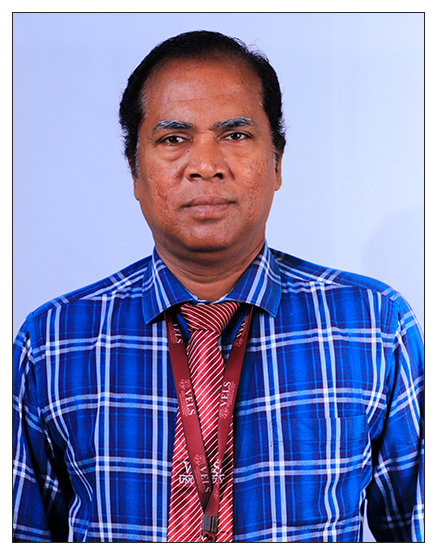 |
| 2 | Dr.S.Ramasubramanian | Associate Professor | 07-02-2012 | B.Tech., M.E.,Ph.D. | Regular | 233520 | 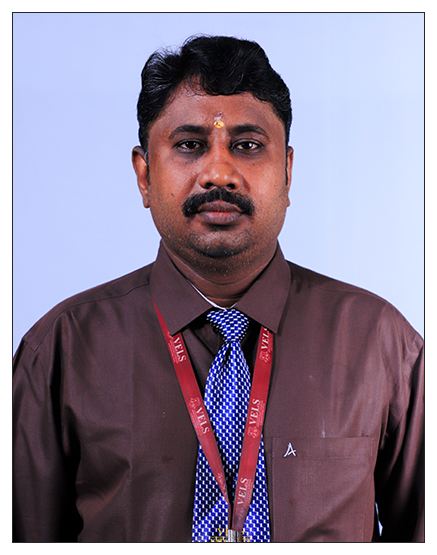 |
| 3 | Dr.M.Ruban | Associate Professor | 07-01-2013 | B.E,M.E.,Ph.D. | Regular | 181017 | 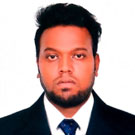 |
| 4 | Dr.S.Venugopal | Assistant Professor | 07-01-2016 | B.E,M.E.,Ph.D. | Regular | 232547 | 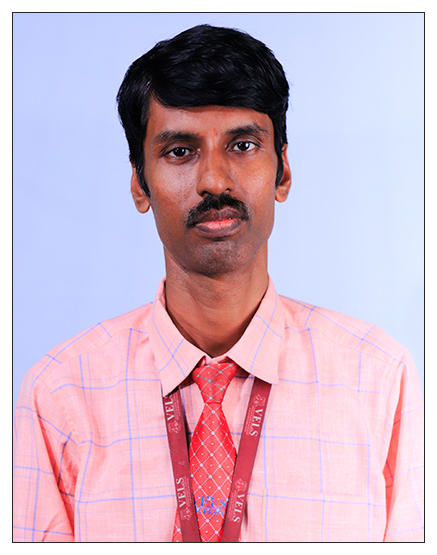 |
| 5 | Dr.V S Shaisundaram | Assistant Professor | 07-03-2017 | B.E, M.Tech, Ph.D. | Regular | 236986 | 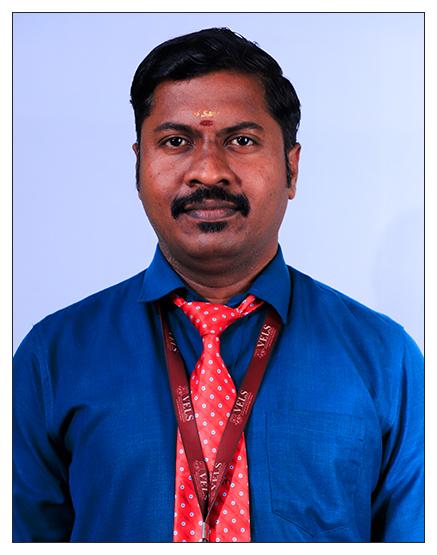 |
| 6 | Dr.S.Jacob | Assistant Professor | 07-01-2016 | B.E,M.E.,Ph.D. | Regular | 233122 | 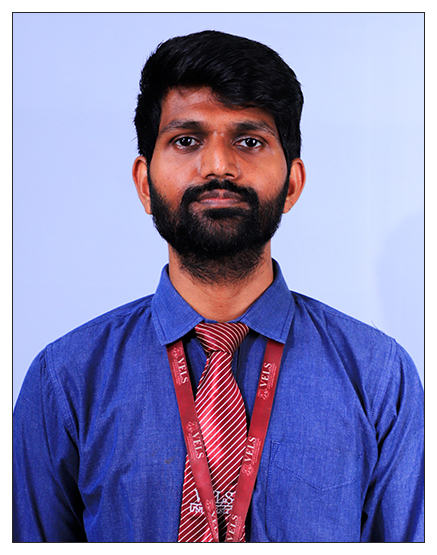 |
| 7 | Dr.S.Baskar | Assistant Professor | 07-03-2017 | B.E., M.E.,Ph.D. | Regular | 173387 | 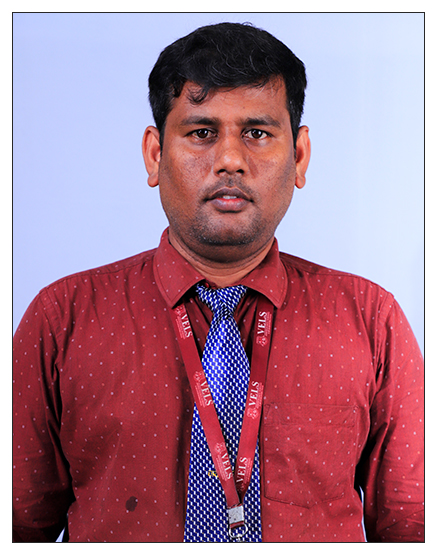 |
| 8 | Mr.S.Sathish Kumar | Assistant Professor | 28/8/2020 | B.E., M.E., | Regular |  |
|
| 9 | Mr.S.Santhosh Kumar | Assistant Professor | 28/8/2020 | B.E., M.E., | Regular |  |
 CHAT WITH A STUDENT
CHAT WITH A STUDENT